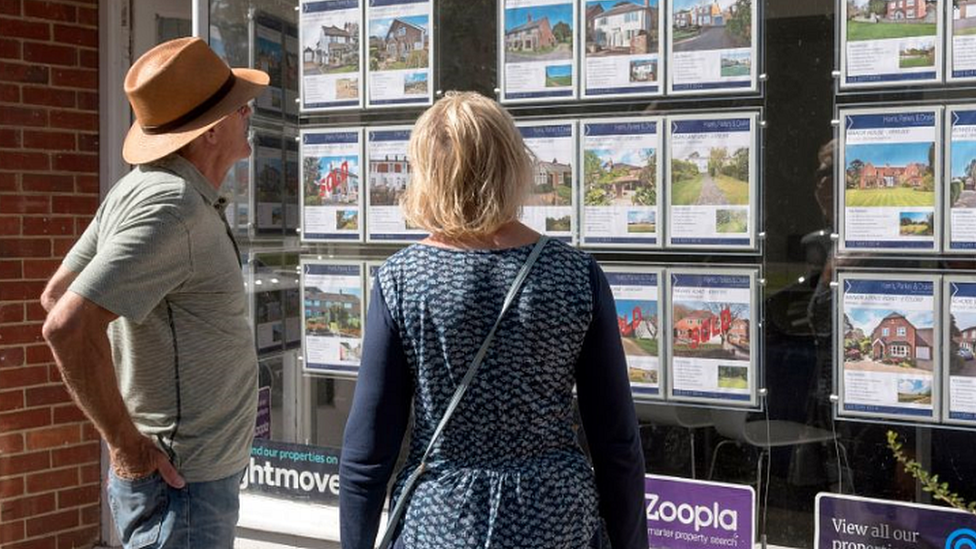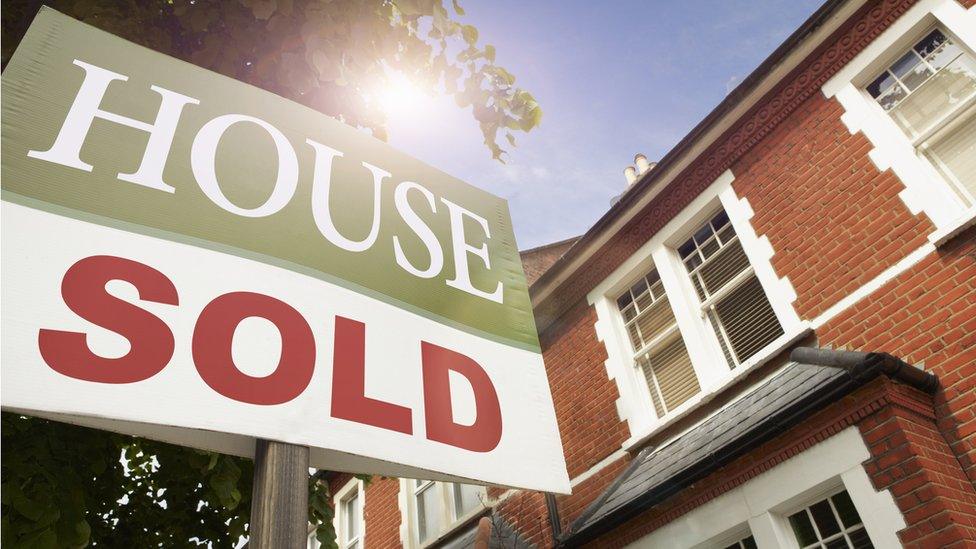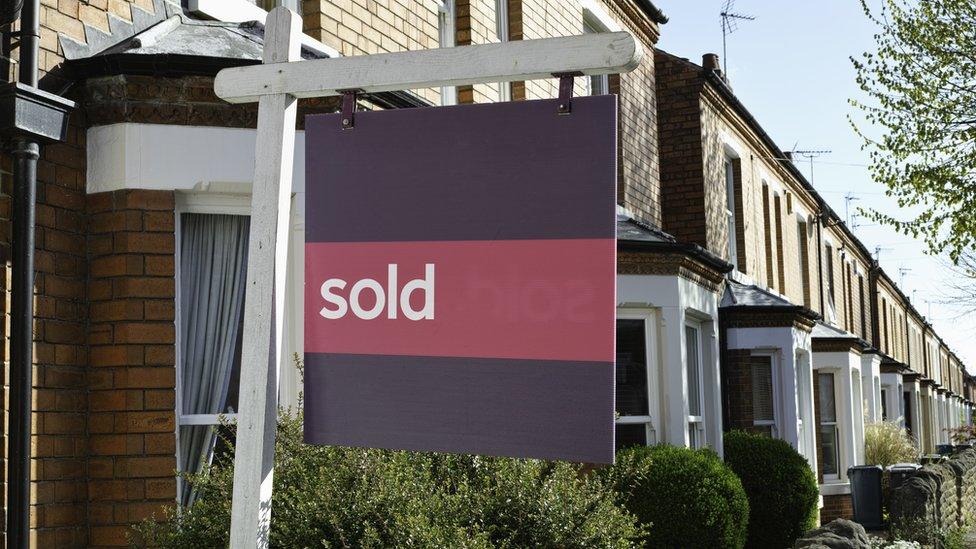Northern Ireland house prices still rising, figures show
- Published
- comments

More than 6,400 homes in NI were sold during the third quarter of this year
House prices in Northern Ireland have continued to rise despite the economic slowdown and increased by 4.1% between the second and third quarter of 2022.
Figures released in the House Price Index report suggest the average price of a home now stands at £176,131.
It also shows an annual rise of 10.7% compared to the same period last year.
The House Price Index was compiled by Land and Property Services with assistance from the Northern Ireland Statistics and Research Agency (Nisra).
The research is compiled using stamp duty information from houses sales that were reported to HM Revenue and Customs (HMRC).
The figures are released every quarter and the latest set shows 6,402 residential properties were sold between July and September.
Although the average home is changing hands at £176,131, prices vary significantly depending on location.
'Soaring mortgage rates'
According to the index, the least expensive properties are in the Derry City and Strabane Council area where the average price was £155,593.
The most expensive place to buy was the Lisburn and Castlereagh City Council area, where an average home sold for £206,569 in the third quarter of this year.
Detached properties have seen the biggest price increase over the past year, rising 13.3% which was almost twice as much in percentage terms as terrace properties which rose 7.6%.
The latest annual house price rise is "not far off rate of inflation", according to Belfast-based economist Richard Ramsey.
Allow X content?
This article contains content provided by X. We ask for your permission before anything is loaded, as they may be using cookies and other technologies. You may want to read X’s cookie policy, external and privacy policy, external before accepting. To view this content choose ‘accept and continue’.
But he added that the impact from "soaring mortgage rates" would become apparent in 2023, putting "downward pressure on demand".
Interest rates have risen sharply in recent months as the Bank of England tries to curb inflation.
Overall inflation in the UK has reached 11.1% - a level not seen for 41 years.
At its most recent meeting earlier this month, the bank increased its benchmark interest rate from 2.25% to 3%.
Related topics
- Published17 August 2022

- Published18 May 2022

- Published16 March 2022
